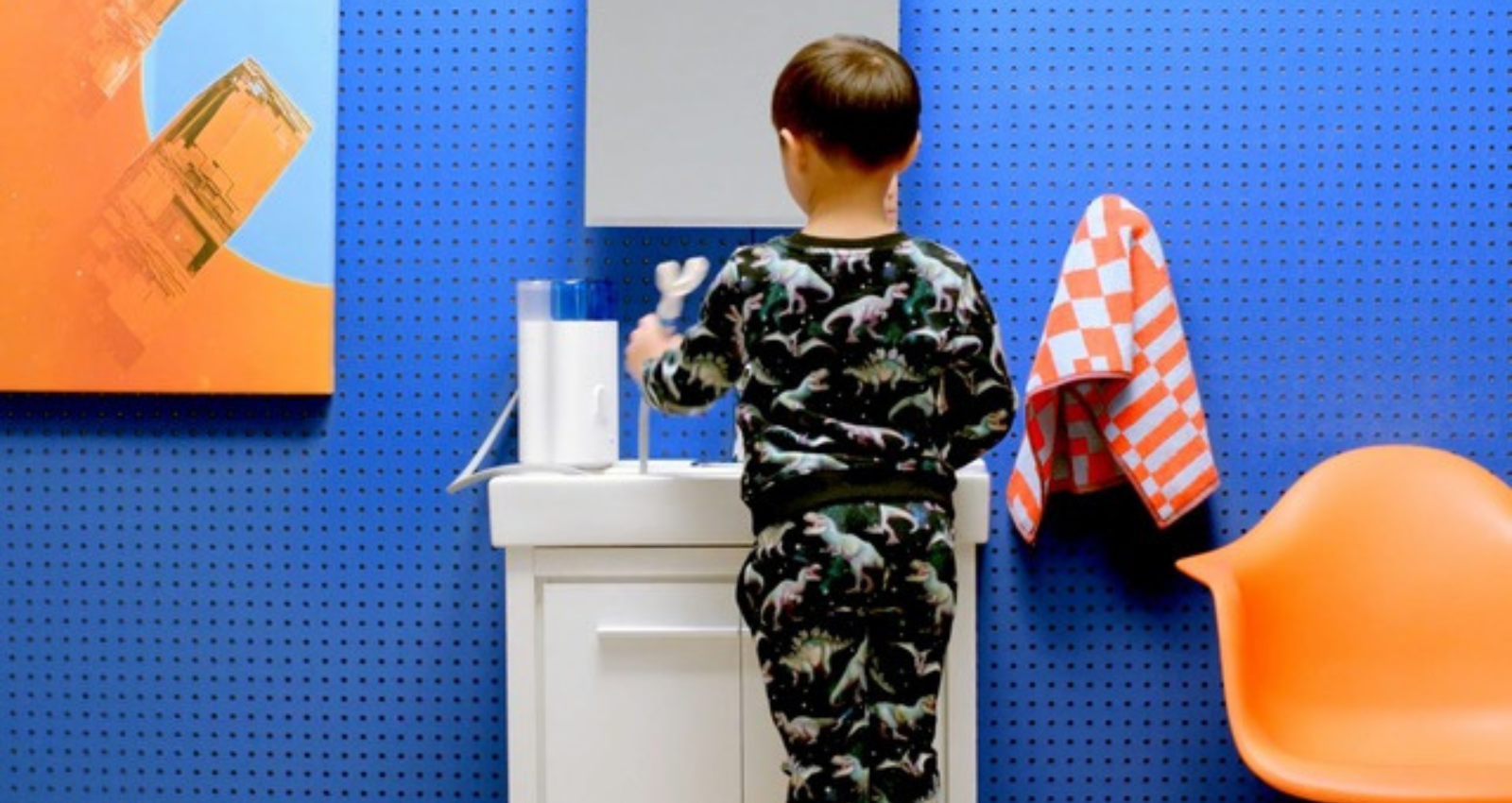
Dental health products to help children with special needs brush their teeth
Parents of children with special needs, especially when sensory processing sensitivities, OCD, PDA or Autism are in the mix, often struggle to get a toothbrush anywhere near their child, let alone work on improving gum health or oral hygiene. This can lead to distress, meltdowns and anxiety twice a day, every day, and that’s no fun for anyone.
We’ve spoken in our previous tooth-brushing blog about what the challenges are, and some of the techniques we can try. In this piece we look at the products and resources that might assist.
Choosing the right toothbrush for kids with special needs
We definitely recommend small headed toothbrushes with soft or silicone bristles, if those are still too much you can also try baby toothbrushes, fingertip toothbrushes, sponge swabs (also called oral toothettes), or even a smooth washcloth with your finger, or even with your finger only to start. At Sensory Smart we have a great range of sensory toothbrushes for children with special needs. Some of our recommended toothbrushes include:
3 Sided toothbrush for sensory brushing

You can get maximum brush for minimum time in the mouth using a 3 sided toothbrush such as our
Dr Barmans superbrush (these also help overcome motor issues or dexterity as they fit over the teeth – so you can place them and let the child run them back and forth). A 45 degree angle in 3 sided toothbrushes ensures improved plaque removal and gum health.
Battery operated toothbrushes
Sensory seekers will like vibrating battery operated toothbrushes, some like them so much they start to use them for sensory input at other times of the day. If holding the brush is an issue, putting a foam grip on the handle may assist.
Choosing the right toothpaste

Some children will like some flavours more than others, and these days there are so many - so experiment if you can. If your child is able you could look at all the options in a supermarket or online and get them to choose a flavour. In contrast other children will not want foaming toothpaste or any flavour at all. In these cases there are flavourless toothpaste options, or without foaming agents (SLS). Some children will not be able to cope with anything that is a paste form, so using mouthwash or liquid wash on the brush may help in those instances. Start with the brush and water only and a speck of toothpaste. Small steps! Shop our range of Oranurse Unflavoured toothpastes.
Other tools and techniques that might help with brushing
- Timers: Giving clear guidance on how long to brush. There are a number of toothbrush companies that make fun timers, or that have music or vibration timed in the toothbrush itself. There are also more specially designed timers like the ‘Time Timer’ traffic light style timers that help for some children who need them, particularly when Autism is in the mix. However, for some a timer creates additional pressure and a song or a rhyme may help better.
- Visual supports and schedules: These can help reduce anxiety by giving clear information about what is going to happen. It also increases independence by reducing the need for constant verbal prompts which can be distracting to a child who needs to focus hard on what they are doing.
- Coloured disclosing tablets or mouthwash: help you and the child to see where is brushed well, and where in the mouth has been missed and this can improve brushing technique over time. Don’t use it to critique though, keep it a game, preferably one that makes them laugh if possible.
- Forming a routine: If, as much as possible, toothbrushing occurs at the same parts of the day, ie, after breakfast, or in a bedtime routine, much of the anxiety about what is happening now, how long it will take and what will happen next reduces over time.
- Patience: I know that we are bombarded with information about all the terrible things that will happen if we don’t look after our children’s teeth. But right now, one decent clean a day is a great start, and the other can be used to practice independence without such demand to get it perfect.
- Books and storytelling: here are some books on cleaning teeth that may support the process. There are some books that address toothbrushing directly, and some that refer to why self care is important and include toothbrushing. There are also books geared towards supporting adults with introducing these life skills. We have a few of these in our book section.
Social Stories can help SEN children with understanding the ‘why’ of why cleaning teeth is important.
We know there is no ‘one magic product’ that helps everyone, but this list will give you some tips about what is working for others and may help for you.


Leave a comment